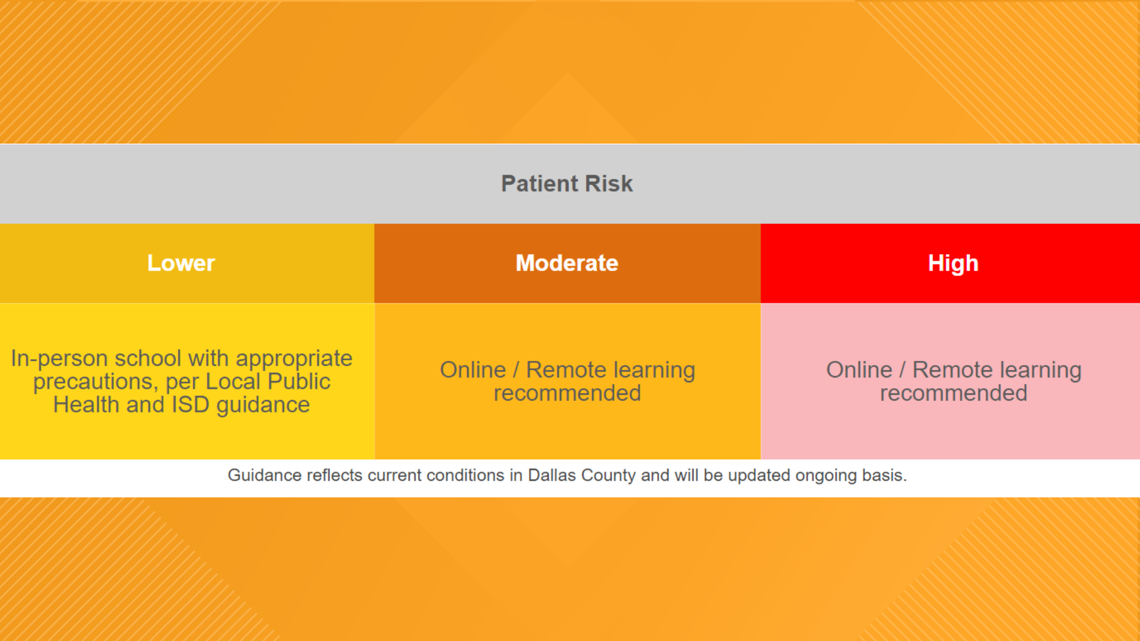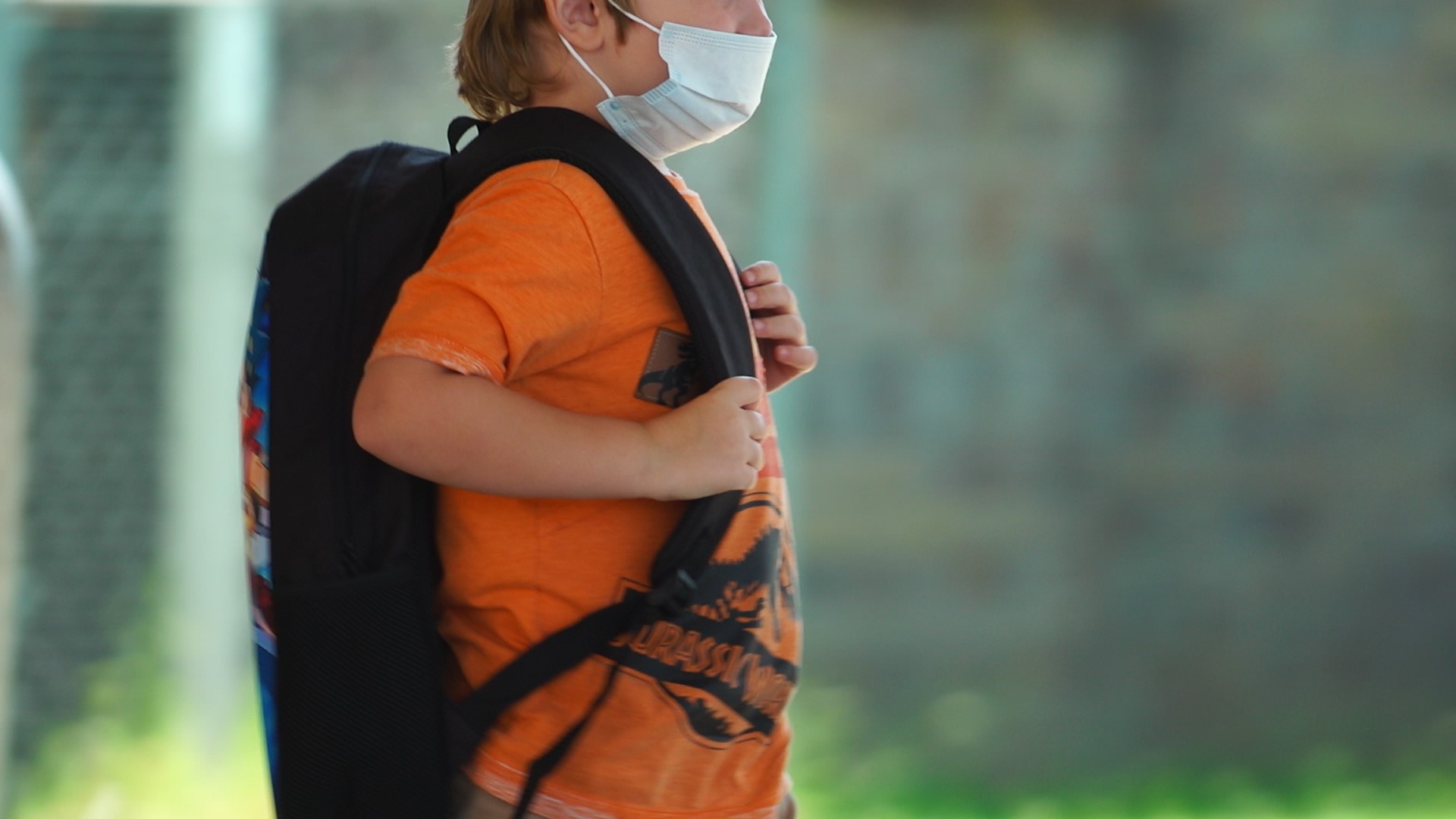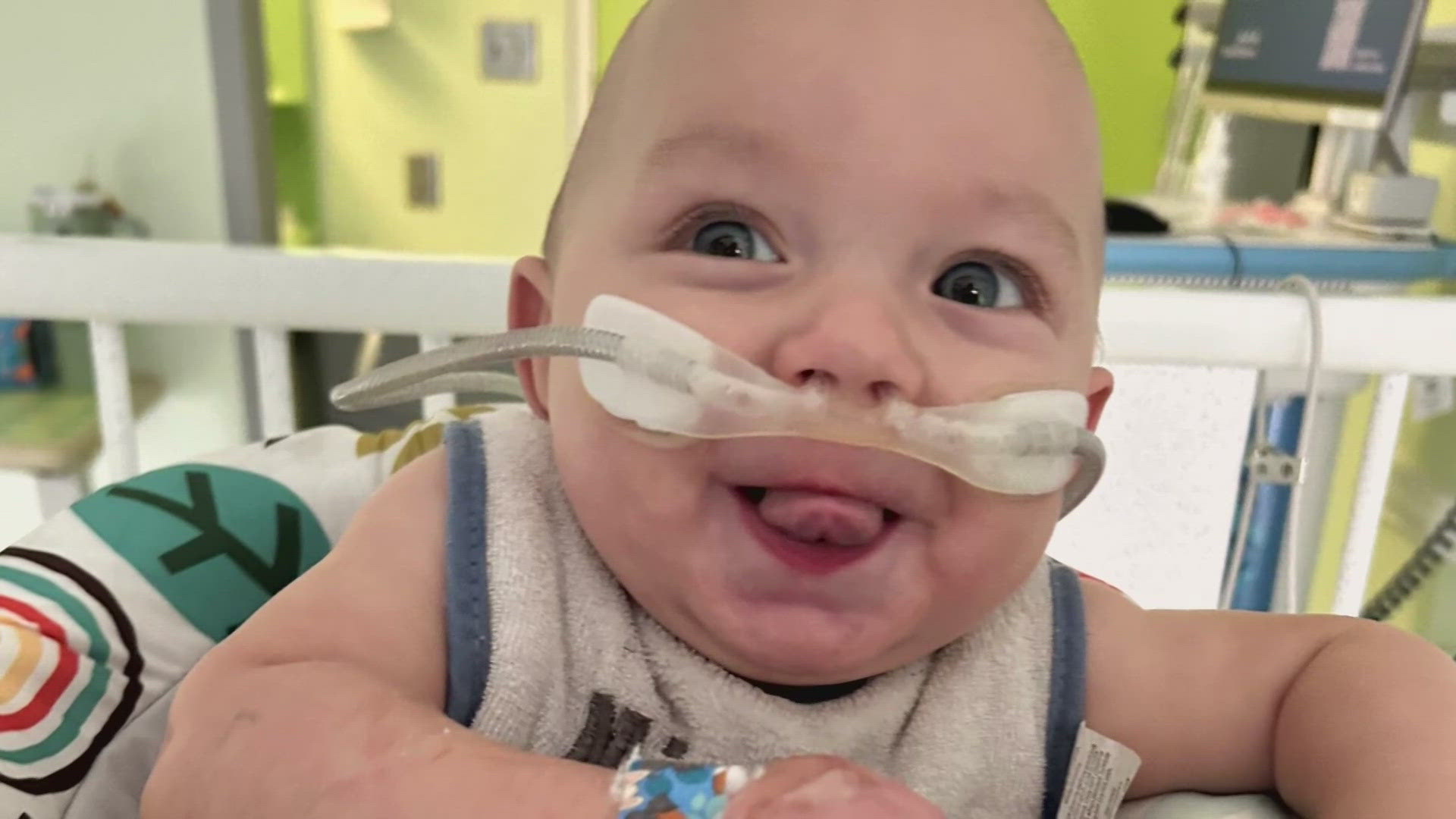Many parents are concerned that their children may contract COVID-19 at school, but there are more factors if a family has a child who has been diagnosed with a health condition.
A group of physician specialists from Children’s Medical Center and UT Southwestern Pediatric Group released back-to-school guidance for parents Wednesday which assesses the risk for multiple health conditions.
Children who have certain medical conditions, such as asthma and cystic fibrosis, are at higher risk for complications from COVID-19.
Other high-risk conditions which are the most common include neuromuscular conditions and sleep apnea.
These various health conditions and medications potentially impair the immune system and may place a child at higher risk for complications from COVID-19, Children’s Medical Center said in a statement.
“Many of the patients we serve at Children’s Health have unique medical conditions, are on certain medications that may change their risk of complications in the setting of COVID-19, live with at-risk family members, or have unique living or emotional situations that complicate decisions around returning to school,” the medical center said.
Children with conditions that are considered moderate or high-risk should choose at-home learning “if the patient and the parents’ situation safely and reasonably allow for that option,” the medical center said.


The guidance says children with type 1 diabetes have a low risk of becoming seriously ill from COVID-19, but children with the condition may have a higher risk of medical complications if they do contract the disease.
Children who have been diagnosed with obesity are also low-moderate risk, but if they have associated conditions, like type 2 diabetes and poorly controlled hypertension, they could have a moderate-high risk.
Children with gastroenterology or liver health conditions may be more affected than the general pediatric population. Liver injury has been described in patients with COVID-19 so patients with chronic liver disease should also be aware of their risks, the medical center said.
The American Academy of Pediatrics guidelines encourage schools to provide in-person learning for healthy children.
"Although limited data exists, it appears that immunocompromised children often have a comparatively less severe medical course than previously reported elderly people and those with pre-existing conditions, including cancer, who are infected with COVID-19," the medical center said.
What about household members with elevated risk?
"While we do not yet fully understand the risk of transmissibility from children to adults, any high-risk medical condition or immune-compromising medication should be considered in the risk assessment," the medical center said.
What other factors influence decision-making?
The guidance suggests families with children that have higher risks to do the best they can to reduce the risk of exposure (wear a mask, avoid excessive close contact, wash hands regularly, etc.), and we encourage healthy children to support their classmates in these efforts.




